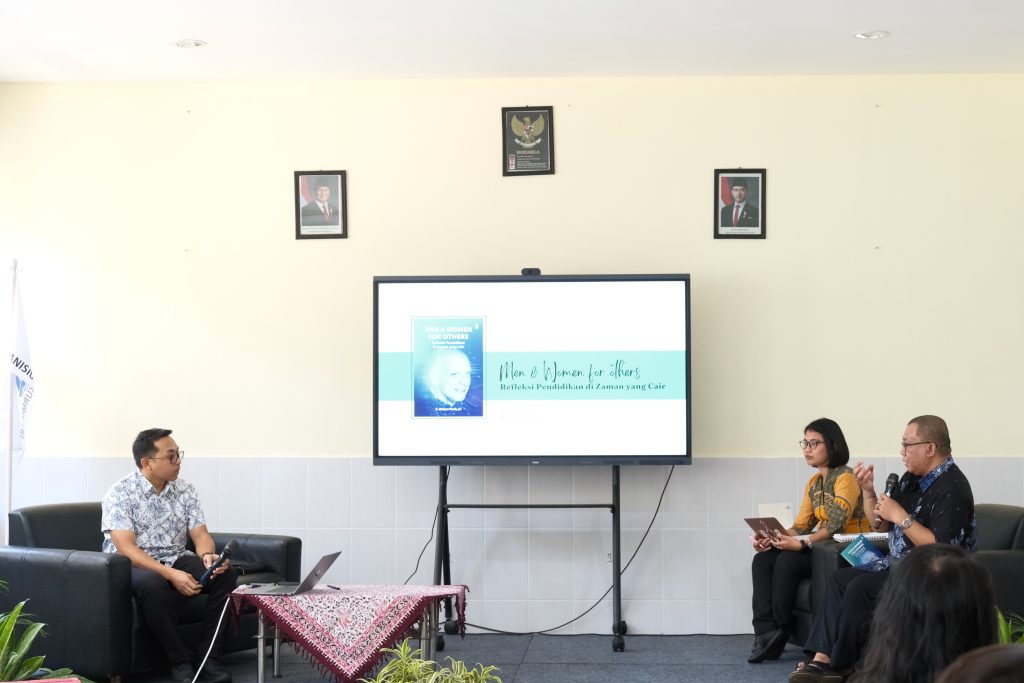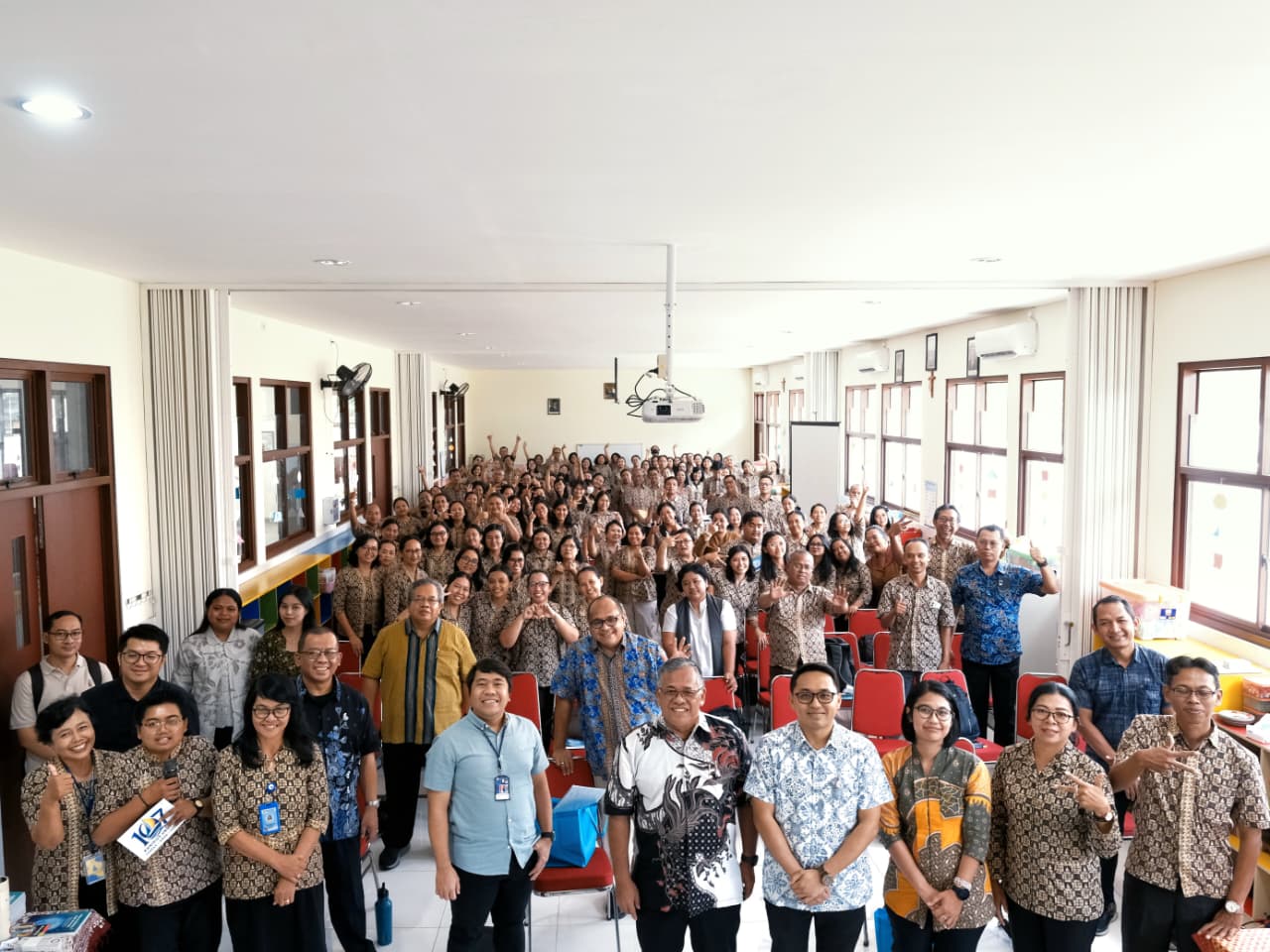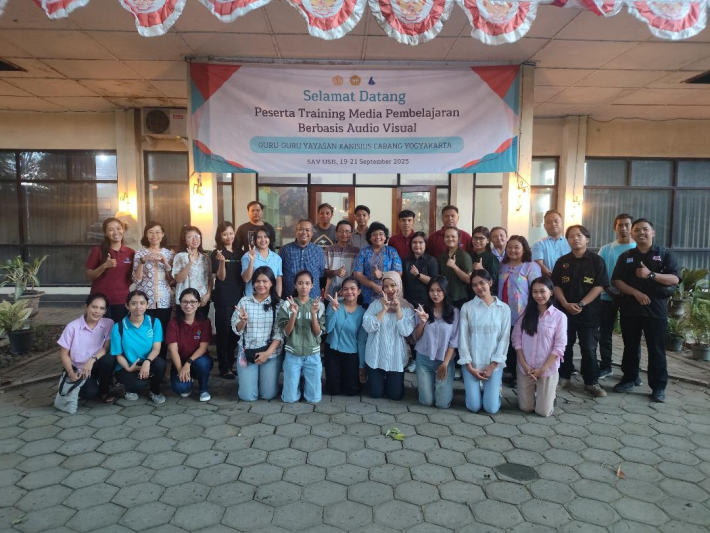Best Practices of Reflective Pedagogy Paradigm (PPR) and Book Review Men and Women for Others
On Friday, October 10, 2025, Kanisius Semarang and various Catholic educational groups held Kanisius Study Day at Kanisius Kindergarten of Kurmosari. This event celebrated the 107th anniversary of the Foundation and focused on best practices of reflective pedagogy and a book review of Men and Women for Others by Father Melkyor Pando, S. J. Father Heru Hendarto, S. J., the Chairman of Kanisius Foundation, emphasized the mission of Kanisius Education as “Missio Dei” and highlighted the role of teachers as collaborators in this mission. He urged participants to engage deeply with God, their subjects, and care for each student.
The Paradigm of Ignatian Pedagogy at Schools
Yohana Rosana Meiwati, the Principal of Kanisius Elementary School, explained how her school uses the cura personalis approach, which focuses on the whole person. This approach starts with the principal, teachers, and staff working together in a shared environment that includes prayer, learning, recreation, and keeping the school clean.
Students receive support based on their individual talents and abilities, leading to many achievements in academics, arts, and sports. Teachers also help special needs students, building their confidence, with one child winning a provincial Paralympic championship. Cura personalis extends to the home through visits to parents of newborns for support.
At Kanisius Argotiloso Junior High School, Principal Yohanes Martono shared their cura personalis practices, including Canisian Angels, a team that assists younger students. They also have Kanisius Charity, where students donate to help peers in need, and various creative activities guided by teachers to support student growth.
Men and Women for Others
Father Melkyor Pando, S. J., spoke at a book review on his work, “Men and Women for Others. ” He created this book out of concern for the limited resources on Jesuit education in Indonesia. The book aims to enhance understanding of Jesuit education’s virtues and its current relevance.
It reflects his experiences during tertianship in Australia and presents the key principles of Jesuit education through time. Drawing from Society documents, it asserts that education is a path to saving souls. The book highlights that while education evolves, its essence remains the same: to develop well-rounded individuals. Jesuit education combines critical thinking and humanities.
In today’s rapidly changing world, a term Father Melky adopted from Zygmunt Bauman’s ideas—describing a world marked by uncertainty —makes the Jesuit model relevant. Emphasizing the 4Cs—competence, compassion, commitment, and conscience—is vital to shaping individuals who embody the ideals of being “men and women for others. ”

The Call of Our Age
Ms. Sindy, a lecturer at Sanata Dharma University, reviewed Father Melky’s book, which highlights how Jesuit educational values can offer hope in a world marked by uncertainty and individualism. These values resonate with Generation Z and Alpha, who seek meaning in their lives. A focus on reflection, intellectual strength, and empathy helps young people find purpose and understand that life involves caring for others, not just oneself. The event fostered a sense of community, furthered by the distribution of prizes intended to improve school facilities. Despite the prizes not being for personal gain, participants remained enthusiastic. The event aims to inspire educators at Kanisius to become extensions of God’s hand in nurturing considerate individuals.
Contributor: Sch. Engelbertus Viktor Daki, S.J.




